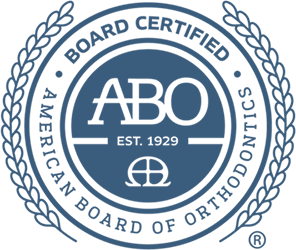About Board Certification
We often hear that different medical and dental professionals are board-certified, but what does that mean exactly? In orthodontics, being board-certified means that the orthodontist has gone above and beyond to ensure that they are well-qualified to treat patients and provide exceptional orthodontic care. Dr. Stroope is proud to be a board certified orthodontist, and she strives to always provide excellent services that utilize the latest advancements in orthodontic technology and practices.
Are all orthodontists Board Certified?
No. While all orthodontists must be licensed to practice, board certification is a voluntary achievement that not every orthodontist chooses to pursue. In order to become board certified by the American Board of Orthodontics (ABO), an individual is tested by a highly respected panel of examiners and required to demonstrate their orthodontic knowledge, clinical skills, and judgment. The ABO certification process is a huge step beyond the two to three years of advanced education required for a dentist to become a specialist in orthodontics— it’s a significant achievement.
How many certifying boards are recognized by the American Dental Association in the specialty of orthodontics?
The American Board of Orthodontics (ABO) is the only certifying board in the specialty that is recognized by the American Dental Association. The ABO was founded in 1929 and is the oldest specialty board in dentistry. The board’s purpose is to elevate the quality of orthodontic care for the public by promoting excellence through certification, education and professional collaboration.
Why would an orthodontist choose to complete this voluntary certification process?
Successful completion of the examination process demonstrates the orthodontist’s personal commitment to excellence in orthodontics. It exemplifies a practitioner’s commitment to continue to stay up to date on the latest advancements in patient care and to continue to deliver these latest advances to patients. Many orthodontists see it as a demonstration of their dedication to the specialty and the highest level of personal achievement.
What steps are required to complete the ABO certification process?
The certification process requirements have continued to adjust to the demands of the specialty over many decades. Today, the process involves an intensive written exam that consists of 240 questions covering all areas of orthodontics and dental facial orthopedics. Successful completion of this board examination allows the orthodontist to proceed to the scenario-based oral clinical exam, where they are evaluated on their knowledge, abilities and critical thinking skills.
Both examinations take significant preparation and time. After successfully completing these exams, the orthodontist has officially achieved board certification, for a limited time period. Orthodontists must go through certification renewal every 10 years to maintain their certification status by demonstrating this continued level of patient care.






